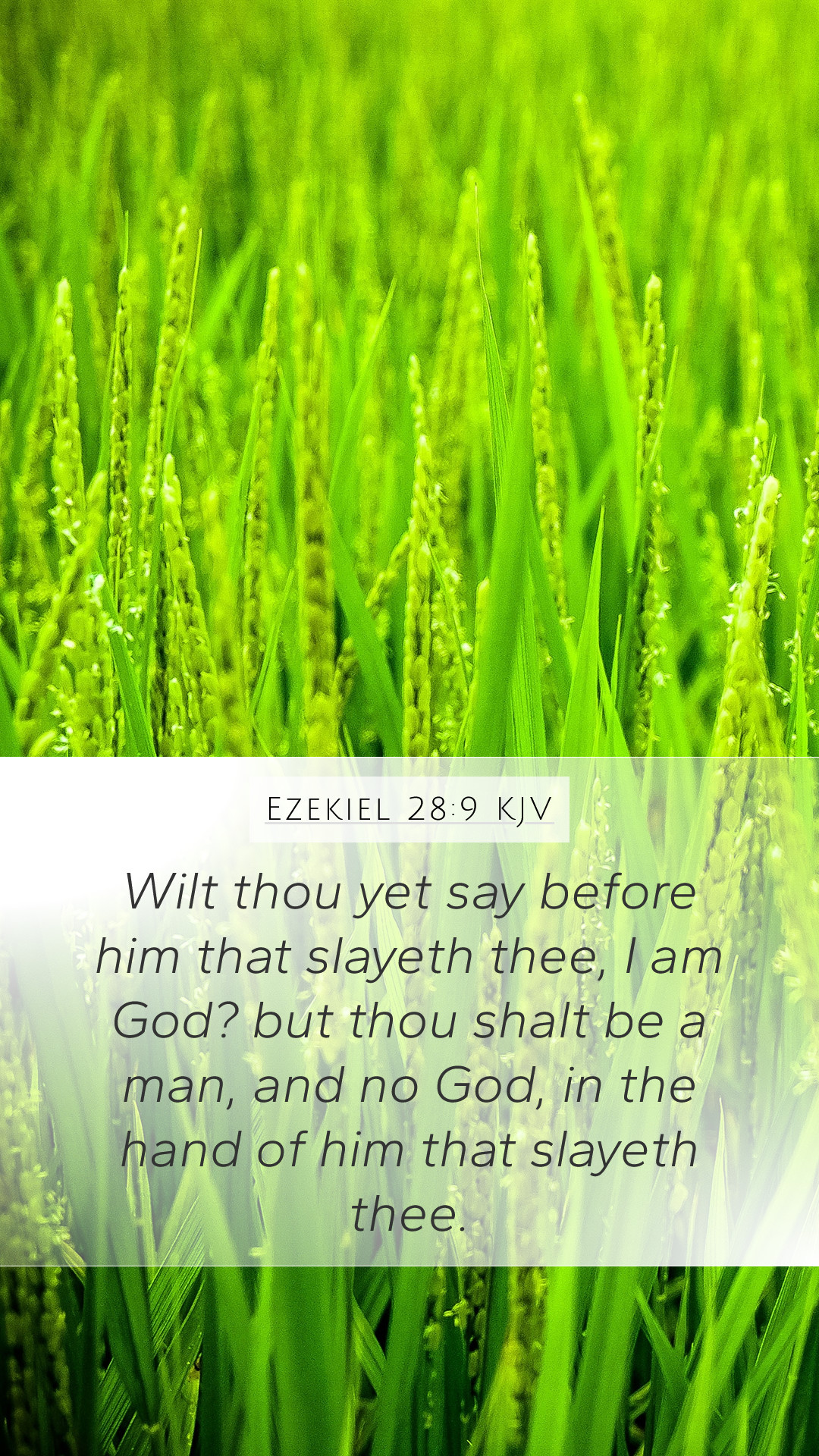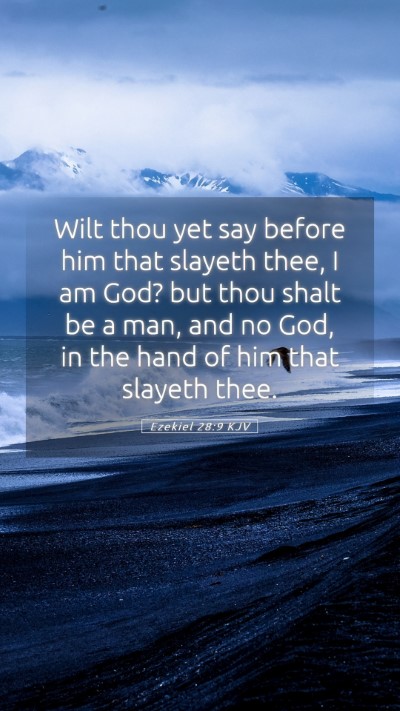Ezekiel 28:9 - Bible Verse Meaning and Interpretation
Bible Verse: "Wilt thou yet say before him that slayeth thee, I am God? but thou shalt be a man, and no god, in the hand of him that slayeth thee." - Ezekiel 28:9
Understanding Ezekiel 28:9
The verse Ezekiel 28:9 carries profound implications concerning pride, divinity, and the role of humanity in the face of divine judgment. It is crucial for readers looking for bible verse meanings and bible verse interpretations to explore the historical and theological contexts surrounding this passage.
Verse Summary
This verse addresses an arrogant claim made by a ruler of Tyre, symbolizing a challenge against God’s sovereignty. The proclamation "I am God" reflects a deep-seated pride, asserting divinity despite the ruler's fragile existence as a mere human.
Insights from Public Domain Commentaries
-
Matthew Henry:
Henry interprets this verse as a vivid reminder of the futility of human pride. He emphasizes that no matter how powerful one may feel, they are ultimately at the mercy of God. The verse serves as a warning against the arrogance that leads individuals to believe they can assume a status equal to God.
-
Albert Barnes:
Barnes expands on the notion of humanity's limitations when juxtaposed against divine authority. He suggests that claiming divinity while possessing mortal vulnerabilities leads to inevitable downfall. The rhetorical question posed in the verse underscores the absurdity of such pride.
-
Adam Clarke:
Clarke’s commentary highlights the historical context of Tyre’s ruler, reflecting the ancient Near Eastern views on kingship and divinity. He notes the verse’s dual application: it serves both as a historical lesson and as a timeless warning regarding the dangers of overstepping the bounds of human authority.
Thematic Exploration
Ezekiel 28:9 touches upon several theological themes relevant for any bible study group or bible study lesson:
- Pride and Humility: The ruler’s claim showcases pride while God’s response emphasizes humility. Understanding this is crucial for anyone engaged in bible study topics focused on moral character.
- Divine Sovereignty: The assertion of being a god is challenged by the inevitable reminder of being human. This theme resonates through various Bible study resources dedicated to God’s omnipotence.
- Judgment and Consequences: The verse foreshadows the consequences of such pride. It is essential in exploring the significance of biblical exegesis and the application of warnings found in scripture.
The Context of Ezekiel
In the broader context of the book of Ezekiel, this passage highlights God’s judgment against the nations surrounding Israel, emphasizing that arrogance against God invites divine retribution. By understanding this context, one can gain in-depth bible verse analysis and better apply this to modern-day scenarios where pride leads to downfall.
Cross References
Related passages that enhance the understanding of Ezekiel 28:9 include:
- Isaiah 14:13-14: Discusses the pride of the Babylonian king, paralleling the arrogance exhibited in Ezekiel.
- Daniel 4:30-32: Details the consequences faced by Nebuchadnezzar for his pride.
- James 4:6: Offers a New Testament perspective on pride, stating that God resists the proud but gives grace to the humble.
Conclusion
In studying Ezekiel 28:9, believers and scholars alike are invited to reflect deeply on the meaning of their existence in relation to God’s supremacy. This passage serves as an admonition to all, reminding us of the importance of humility and the recognition of our place in the created order. For those seeking to understand difficult Bible passages or looking for application in daily life, the insights from this verse bring clarity and direction in navigating the challenges of pride and identity.
As you engage in online bible study or utilize various bible study tools, keep Ezekiel 28:9 in mind as a fundamental teaching regarding the nature of God and the fragility of human pride.


